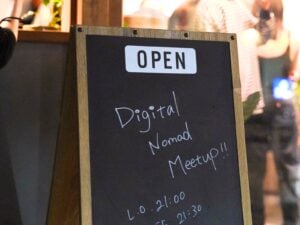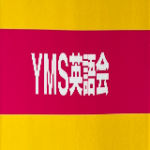
Working in Japan can be an amazing experience. But sometimes your day job doesn’t pay enough to cover the fun stuff. If you want more money to travel, eat and explore Japan, read our advice on how to earn a little extra.
What kind of part-time jobs in Japan are available?
Teaching English
Teaching English is one of the most popular part-time jobs in Japan for foreigners. If you are teaching in a school during the day, it is easy to schedule time to teach in the evenings and weekends. You can choose to teach adults or children. You can teach at an conversation schools such as Gaba, or from the comfort of your own home online.

Service industry
The service industry offers many types of part time jobs. For example, restaurants often hire foreigners as kitchen staff or food delivery people. Hotels employ foreigners as part time cleaning staff. The typical salary will usually be between ¥1000 – ¥1200 an hour. However, they are flexible and do not require a high level of Japanese.
Translator
If you have a N2 business level in Japanese, you can earn a higher salary for part time work as a translator or interpreter. This may involve working for a single company or working freelance online. Depending on the work involved, you can earn at competitive rates between ¥1,500 – ¥3,100 per hour.
What kind of part-time job am I allowed to do?
This depends a lot on the Visa Status (Status of Residence) you have.
If you have any of the following, you can partake in any job activity you like:
- Dependent
- Spouse or Child of Permanent Resident
- Spouse or Child of Japanese National
- Long Term Resident
- Permanent Resident
However, a working Visa status may limit your options.
Instructor
An Instructor status is very confined. This type of Visa status restricts you to only teach in educational institutions such as schools. This is limited to elementary, junior high, high school, special education and vocational schools.
You are not allowed to additionally teach English to private students or at any English conversation schools.
Engineer/Humanities
An ‘Engineer/Humanities’ status of residence is much more flexible! You can work for English conversation schools and also the following industries:
- Interpretation / translation
- Business management
- Copy-writing
- Sales
- Fashion design
- Interior design
However, your second job type must be consistent with your Engineer/Humanities’ status. There are two main conditions:
- “Activities that require knowledge of jurisprudence, economics, sociology, or other human science fields
- Activities that require specific ways of thought or sensitivity based on experience with foreign culture.
(From Japanvisa)
This means that jobs in hotels, restaurants, bar work or selling things on Etsy or eBay are not permitted on your visa.
Do I have to tell my employer if I have a second job in Japan?
This first thing to do is check your contract. Many employers include a very strict-sounding ‘non-compete clause’. This type of sections outlines that any work outside of that for the company is prohibited.
However, non-compete clauses are generally unenforceable as they contradict Article 22 of the Constitution of Japan:
Article 22
Every person shall have freedom to choose and change his residence and to choose his occupation to the extent that it does not interfere with the public welfare.
Therefore, anyone is free to choose their own employer, regardless of their current contract.
It is your personal choice whether you inform your current employer that you want to work for another company. Your main company may be sponsoring your Visa, but the Ministry of Justice owns it. Your visa is not bound to any specific company. However, if you want to stay with your main employer, we recommend letting them know you are interested in working additional hours part-time.
Do I have to get permission from Immigration?
This is a big YES! You must require permission for any additional paid work in Japan. (Note, you do not need special permission to engage in any voluntary work.)
You must start the process for “permission to engage in activity other than that permitted under the status of residence previously granted” through the immigration office BEFORE you start any additional paid work.
1. Complete the Application for permission to engage in an activity other than those permitted by the status of residence previously granted form. You can write in English, but it may process faster if the answers are in Japanese.
2. Submit the form and additional documentation to the Regional Immigration Services Bureau with jurisdiction over your place of residence in Japan. There is no fee to submit this application.
3. Wait. The process can take from 2 weeks to 2 months to complete.
4. Once accepted, you can collect the completed application form with your identification documentation from the Immigration Office.
How do I pay taxes on my second job?
It is necessary to complete your own final tax return if:
- You have secondary income, be it a second job, share dividend or so on that exceeds 200,000 yen per year or
- You have more than one employer
This tax form is called Kakutei shinkoku (確定申告). Here you must declare your total earnings from 1 January to 31 December of the previous year and your calculations for the amount of tax payable. You can find out more information to confirm if you are required to complete a Kakutei shinkoku.
We hope this article has given you a little guidance on managing your side-hustle. If you would like more information on working in Japan, please see our latest articles.
Article Author: Beth Lawson















